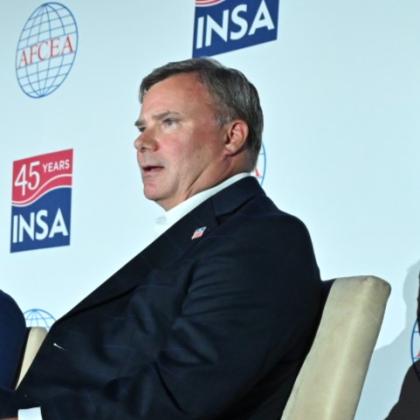Experts Urge Faster Tech Adoption in U.S. Intelligence
The United States innovates at two different speeds, one in the commercial arena where it leads, but in intelligence, it only cruises at a pace dictated by organizational inertia.
“We've got an open society that promotes and encourages risk-taking and a free market that's absolutely amazing, where I think we all short are in the other two areas, adoption and adaptation,” said William Usher, senior director for intelligence at the Special Competitiveness Studies Project, explaining how the government leverages new capabilities for the intelligence community (IC).
A group of experts discussed the integration of technology within the IC and defense sectors, emphasizing the need for both immediate and future-oriented solutions on Tuesday in Bethesda, Maryland. They highlighted the challenge of adapting evolving technologies to meet specific mission needs and fill capability gaps.
Investments in emerging technologies, including artificial intelligence (AI), quantum computing and advanced manufacturing, were underscored as essential to maintaining national security and competitiveness.
“A lot of technology is going to be applied more broadly across the government, and we should be looking at ways where we can really amplify work that is done, research projects that are funded, investments that are made on behalf of specific groups and getting them to a broader audience, getting the technology deployed on a broader scale more quickly,” said Megan Anderson, executive vice president at In-Q-Tel, a not-for-profit venture capital firm linked to the Central Intelligence Agency.
Challenges adopting private cutting-edge technology across agencies and services was a theme.
“How do we take the investments we're making in these companies, in these programs, and then scale them across the IC, across the Department of Defense; that's really a challenge,” said William McHenry, intelligence community lead at the Defense Innovation Unit.
The panelists also addressed the importance of leveraging innovative startups, noting the difficulties in aligning motivations. As investors are interested in securing revenue streams as soon as possible for new companies and government requires compliance processes that may stretch over long periods of time, these two actors may put an emerging company at odds with their short- and long-term goals.
“If you understand each other's motivations and then you understand what success looks like for each of your audiences, you're setting yourself up to have a transparent conversation how to work together,” Anderson explained.
Fast technology adoption also poses major challenges. While it is hard to know exactly which impact innovations will have, especially their negative consequences, the IC is forced to stay ahead of competitors and malicious actors.
Concerns were raised about the risks and ethical considerations of deploying AI, especially in operational settings, with a focus on ensuring trustworthiness and avoiding unintended consequences. Michael Groen, event moderator and former director of the Joint Artificial Intelligence Center, lauded the U.S. Department of Defense for its early adoption of standards to keep innovation within principled use.

We've got an open society that promotes and encourages risk-taking.
Another reservation around AI is its trustworthiness, hallucinations or prompting that could lead to revealing sensitive information.
“The broader problem is, what type of assurances does the intelligence community need to be able to use these tools in an operational setting?” said Rick Muller, director at IARPA, the Intelligence Advanced Research Projects Activity.
Usher pointed out that current intelligence analysis structures have layers of human reviewers and editors. Despite current reservations with AI, the technology is expected to evolve.
“I think that job will be obsolete or nearly so in the not-too-distant future,” Usher told the audience.
The need for proactive, rather than reactive, approaches to technological adoption was stressed, along with the importance of fostering a culture of innovation and flexibility within government agencies.
The panel “Next-Gen National Security: Tech Advancements at Speed and Scale” discussed innovation at the Intelligence and National Security Summit, a yearly event organized by INSA, the Intelligence and National Security Alliance, and AFCEA, SIGNAL Media’s parent.




Comments